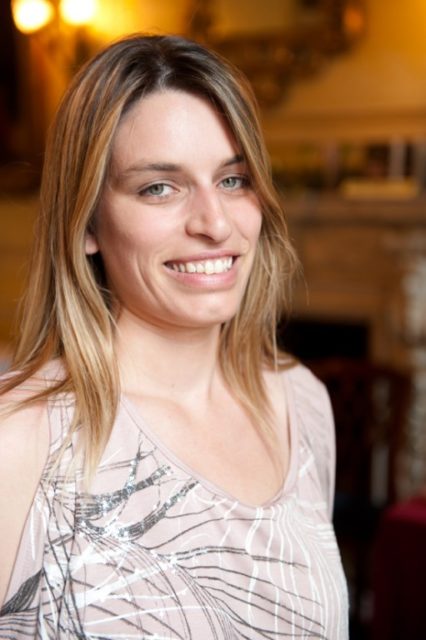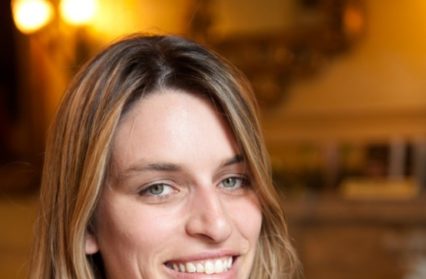John Lavin attends the XX Women’s Writing Festival featuring editors and writers both new and established, such as AL Kennedy and Kim Moore.
Taking place shortly after Cardiff Council confirmed it will remove its entire annual funding to more than ten arts organisations, including Chapter (where the event was held), the XX Women’s Writing Festival acted as a timely reminder of why a venue like Chapter exists, providing as it did, an excellent example of the cultural vibrancy of Wales’ capital city. The events combined the new with the internationally renowned to admirable effect and were all well attended, while Chapter as a whole was full to bursting point throughout.
The XX Women’s Writing Festival was also, of course, an ideal and, indeed, an important and empowering way to celebrate International Women’s Day.
The event had begun the previous afternoon with a number of well-received events including talks by one of Wales’ most talented painters, Shani Rhys James, as well as the editor of Virago Books, Lennie Goodings. In the evening Chapter then played host to a special edition of the Cardiff Literary Salon. Presented by Parthian Editor, Susie Wild, the evening featured a host of new writers reading alongside the already widely admired Tiffany Murray. Murray read from her forthcoming ghost story Sugar Hall, as well as from her previous effort, Diamond Star Halo, which was inspired by a childhood spent at Rockfield Studios, Monmouth, during the era in which ‘Bohemian Rhapsody’ was recorded there.
The new writers were all extremely promising (and indeed two of them, Georgia Carys Williams and Carly Holmes have both already had stories published in Wales Arts Review as part of our Fictional Map of Wales series). Williams read two pieces of sensuous, highly perceptive prose from Second-Hand Rain, her début collection of short stories due out later this year. Holmes, meanwhile, read from her hot-off-the-press début novel, The Scrapbook, a powerful work of great psychological acuity and emotional intensity, revolving around the intertwined lives of Fern, Iris and Ivy: daughter, mother and grandmother.
Rhian Elizabeth, reading from her début novel, Six Pounds, Eight Ounces, added a rich vein of humour and social realism to the evening, calling to mind contemporary Welsh literary giants like Rachel Trezise and Joe Dunthorne. Written in a disarmingly straightforward style that is actually very difficult to achieve, Elizabeth finds moments of clarity and poetry in unlikely places, and seems almost certain to be a future literary star.
On the following day, International Women’s Day, one of the undoubted highlights of the XX Women’s Writing Festival was ‘New Poets’, featuring readings from Kim Moore, Jemma King, Kathyrn Simmonds and Cath Drake. Kim Moore has to date only published a chapbook of verse, If We Could Talk Like Wolves, but is already a highly accomplished poet. Her poems are often very funny but at the same time, very frequently profound. On the surface her work can almost seem over simple, however, this is a ruse. If her work appears this way at first it is because she is deliberately trying to describe the purity and perfection of seemingly insignificant events, such as walking into a sweetshop to hide from the rain in Bowness:
but mostly you think of the people, drawn to water,
and how it looks in the rain, as if the very shops
are made of water, of ducking into a doorway
and carrying the smell of rain inside.

As I was already an admirer of Kim Moore’s work, the real revelation of the event for me proved to be Kathryn Simmonds, whose work I was previously unfamiliar with. Her poems about motherhood and questions of religion were handled with great subtlety both from a psychological and an artistic point of view. No mean feet where these two, often sledgehammer-friendly subjects are concerned. The poem, ‘The New Mothers’ was particularly impressive in it’s handling of the unremittingness of the cycle of life and in its evocation of youth vanished in the blink of an eye. It’s closing line, ‘babies with wet mouths feeding in the dark’, creating an altogether sinister atmosphere in the auditorium.
Star turn of the event AL Kennedy made the first of two appearances for a debate concerning Women Writing About Sex, alongside Welsh Book of the Year-winning poet, Rhian Edwards, Mslexia editor Debbie Taylor, and chair Carole Burns. AL Kennedy was frequently hilarious on the subject but the debate itself didn’t travel very far from the premise that writing about the sexual act itself is extremely difficult to do well, veering as it often does into the pornographic as soon any anatomical references are attempted. It was generally posited that it was better to indulge in something that was somewhat alarmingly referred to as ‘literary foreplay’ rather than to show the act itself. To show both before and after but not during, in other words. This, combined with a long, jokey side-conversation about 50 Shades of Grey (which Taylor defended as a successful ‘masturbation aid’ that was clearly not meant to be a work of literature), felt a little disappointing to me coming from an all women panel, as it really appeared to side with Martin Amis’ pronouncement that writing about sex is virtually impossible (something, admittedly, that he gamely proved in The Pregnant Widow). All in all it seems to be more of a peculiarly British view than a gender-divided one. Who else but the British, after all, would have an institution like the Bad Sex Award? A prize which, yes, certainly flags up some hilariously inept writing about sex but one which also serves to re-inforce the idea that sex cannot be written about well, and perhaps should not be written about at all.
It is pure nonsense, of course. Ulysses, the greatest modern novel, is full of good writing about sex. Think of Molly Bloom’s final lines – ‘I put my arms around him yes and drew him down to me so he could feel my breasts all perfume yes and his heart was going like mad and yes I said yes I will Yes’ – and tell me that good writing about sex is impossible.
And yes, of course, there are British women writers out there who write fantastically about sex. Ali Smith is the one who most readily springs to mind, her book Girl Meets Boy containing, as it does, some of the most sensuous and perfectly realised writing about sex that I can ever remember having read. Sarah Hall is another virtuoso and, of course, the third writer that I would add to the list would be AL Kennedy herself.
Indeed one of the curious aspects of the sex writing debate was that AL Kennedy is someone who writes about the subject extremely well. Maybe not Joyce-well but very well nevertheless. Something that she ably demonstrated with an extract from her new collection All the Rage. The only book of Kennedy’s short stories I had read before the event was the much earlier Indelible Acts, which I recalled as being a highly sexually explicit volume, very successfully rendered but certainly one that trod a fine line at times, almost slipping over into the realm of pornographic writing. In light of the earlier debate, I realised that this made sense as Kennedy had said that she had considered writing pornography to earn money at one point when she was starting out as a writer. But as good as Indelible Acts is, her new collection, All The Rage is much better, fusing as it does, a wonderful poetic lyricism with Kennedy’s gift for writing about sex and relationships. A poetic lyricism which in fact recalls Joyce and Ali Smith in it’s almost-use of stream of consciousness to describe the shift and sway of the workings of the human mind.
Kennedy’s work as a stand up comedian obviously comes in handy at literary events because she is not just a gifted reader but a gifted entertainer too, acting out humorous new story, ‘Baby Blue’, which is concerned with a visit to a sex shop (and features the following, winning lines) with relish:
Chocolate-flavoured condoms. They had chocolate-flavoured condoms. You like penises, you like chocolate, why not both? There were many whys for not both. For many reasons, my opinion was in favour of not both.
It was a pity that Kennedy only read this one extract as it would have been nice to have had an extract from one of her more familiarly darker pieces to act as a contrasting text. Also, the event felt a little Q&A-heavy. AL Kennedy only read for around fifteen minutes while the Q&A, stimulating and insightful as it was, began to run out of steam a little towards the end, simply because of the length of time it went on for (approximately forty-five minutes). Quibbles aside it was unquestionably an excellent way to bring the XX Women Writing Festival to a close, reminding us, as it did, of the brilliant and emancipating power not only of art but of humour too.
XX Women’s Writing Festival
Chapter Arts Centre, 7th – 8th March, 2014.











